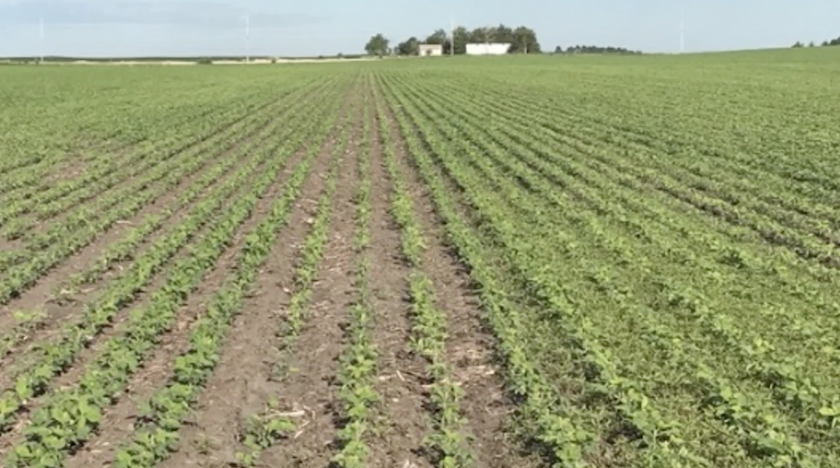Prepare for Planting: The Ugly Truth About Waterhemp
PrepareForPlanting040823
As more farmers hit their fields to start planting, possible problems with tough-to-control weeds, such as waterhemp, are already impacting decisions. An Iowa State University Extension field agronomist says farmers might need to be more aggressive in controlling what’s become a problem for much of the Midwest.
Weeds and weather are a challenge year after year. New London, Iowa, farmer Brad Dodds has seen a rollercoaster of weather already this year.
“You can manage a lot of things, but you can't manage the weather,” Dodds says.
From drought in western Iowa to saturated soils in the eastern part of the state, farmers are already seeing the weather extremes this year.
“I'm finding that a lot of conversations I’m having with farmers are that it's actually drier than they thought it would be coming out of such a wet winter, as we seem to have had a lot of snowpack,” says Meaghan Anderson, Iowa State University Extension field agronomist based in central Iowa. “And it seemed like we had a lot of freeze-and-thaw cycles.”
Even With Rain Delays, Prioritize Weed Control
Anderson says even if planting is pushed back due to rain, weed control needs to come first.
“I know it's so tempting, if we get delayed, to need to get out there and get everything planted. And if we can get out there with a herbicide pass before the crop is up, that's probably OK. But in a lot of cases, we still need to be thinking about that timeline and making sure those weeds are taken care of first,” she says.

The photo above is proof of how effective an early start on weed control can be. Anderson says the half of the field on the left received a pre-emerge herbicide application before the farmer was rained out. As you can see, the right half that didn’t get the early application of herbicide, is the one that turned into a nightmare for weed control.
“The goal in my mind is that those pre-emergence products are really setting us up for the best possible growing season we can have, regardless of the weather that comes after that,” Anderson explains.
A Changing Approach
Dodds says his strategy is to spray fields as early as possible.
“Things have changed immensely in the last, I would say five to 10 years, where you did wait. Now, with a lot more pre-emergence options available we go out early,” Dodds says.
Another change that’s been pivotal on his farm is the decision to prioritize soybeans when planting.
“It used to be wait on soybeans, do your corn first,” Dodds says. “Now, we're doing both at the same time. We've found quite a bit of a yield advantage to planting soybeans early, so we need to be getting a pre-emergence down.”
He says changes to their herbicide program were also spurred by the move to minimum tillage in soybeans, which helps free up some of his time allowing him to get into fields and prep for weeds sooner.
“It used to be when you didn't get it with the chemical, you'd take out a cultivator and take care of it. Well, with our changing tillage practices and management practices, we don't have that option anymore. So, we've had to change our whole approach to weed management,” Dodds says.
The War Against Waterhemp
His biggest weed problem is one that haunts many corn and soybean farmers: waterhemp.
“In 90% of cases it seems like, across Iowa, we're targeting a weed that will not be up for probably four to six more weeks,” Anderson says. “It’s starting to germinate and won't finish germinating until probably the end of June. So, we have a really long window we're trying to capture waterhemp and make these passes as effective as possible.”
Anderson’s advice is to put as much of your chemical program on at the start of the season to be as effective as you can with the pre-emergence applications. The other key is to make sure you’re starting clean.
“I think the rate thing is what trips up a lot of people because they assume if they're using the full rate on the product label that's as much product as they can use for an individual active ingredient. That is not necessarily the case,” she says.
From doing their own spraying to getting better at scouting and identifying problems in their fields, farmers such as the Dodds have learned to control what they can in order to weather any storm.
Related Stories:
Spraying Early Before Weeds Even Sprout Can Be One of the Most Difficult Changes for Farmers
3 Tips for Better Weed-Control Outcomes this Season
Trouble in Turn Rows: Prevent Weeds from Flourishing in Headlands







